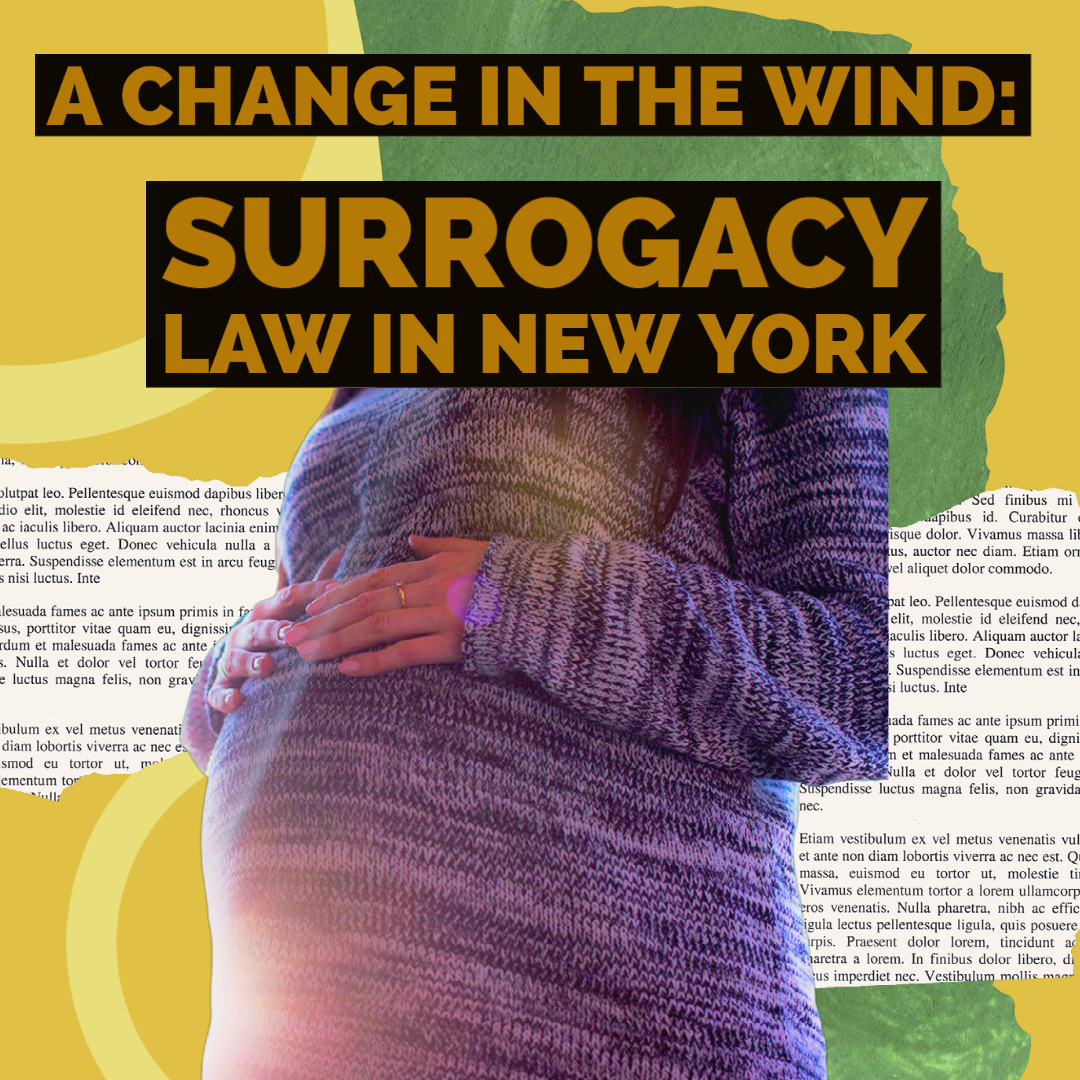UPDATE: On April 2, 2020 the New York State Legislature passed the Child Parent Security Act (CPSA) and Gov. Andrew Cuomo signed the bill legalizing gestational surrogacy. The CPSA went into effect on February 15, 2021.
In layman’s terms, surrogacy is simply arranging a woman to carry and give birth to a child. The contracts that are used between the “intended parents” (or “genetic parents”) and the “surrogate” (or “gestational mother”) are called “gestational agreements” (or “surrogacy contracts”).
As it stands today [2019], paid surrogacy in New York is illegal. That is, it is illegal to “accept, receive, pay or give any fee, compensation … directly or indirectly, in connection with any surrogate parenting contract …” (Article 8 of the Domestic Relations Law § 123).
Furthermore, such conduct is a felony, subject to a civil penalty.
Conversely, unpaid surrogacy contracts are not subject to such harsh punishment. Instead, unpaid surrogacy contracts are considered void and unenforceable. However, the surrogacy is legal, and the intended parents can either seek adoption upon consent of the surrogate, or court intervention to determine custody based on the best interests of the child.
In the 2011 case T.V. v. N.Y. State Dep’t of Health, genetic parents sought to adopt their biological child birthed from a surrogate. In their written opinion, the intermediate appellate Court discusses the history of banning surrogate parenting contracts. In 1988 a Task Force on Life and the Law was convened which recommended that custody should remain with the birth mother, unless the court finds it to be in the best interests of the child to award the genetic mother custody. In 1992, after years of debate, the New York State Legislature outlawed surrogacy contracts as a matter of public policy.
However, the Task Force, in recognizing the obvious, stated in its report that while the law would “greatly reduce” surrogacies, it would not eliminate them from happening. Therefore, in furthering the birth mother’s presumption of custody, the New York State Legislature enacted Domestic Relations Law § 124, which provides that the birth mother’s participation in an illegal surrogacy contract should not be held against her in a custody battle.
***
Same sex couples, women who cannot conceive or women who have high risk for their own and/or their unborn child’s life may look to surrogacy as their only hope. Moreover, pregnancy carries with it an inherit risk of death and complications (According to the CDC website “Sadly, about 700 women die each year in the United States as a result of pregnancy or delivery complications”).
Another issue is cost. On average IVF can cost approximately $40,000 – $60,000 to undergo two cycles (FertilityIQ). While surrogacy is not cheap, there is more wiggle room because there are different components, such as agency fees, attorney fees, and surrogate compensation, which allows for shopping around as opposed to being locked into a one-stop-shop with no bargaining power.
***
Our laws evolve as society changes, and New York is catching up to what is already legal in other States. Currently, there is pending legislation that would legalize surrogacy contracts. Senate Bill S2071B was passed in the Senate and is now awaiting review in the Assembly as of June 2019. The legislation would authorize gestational agreements (otherwise known as surrogacy contracts) if they conform with specific requirements. The intended parents who meet the requirements for the surrogacy contract can then seek a judgment of parentage from a court, prior to the birth of the child, which becomes effective immediately upon birth.
A New York State Assembly Memorandum in Support of Legislation (Sponored by Rep. Amy Paulin), justifies Senate Bill S2071B (Assembly Bill A1071C) because “New York law has failed to keep pace with medical advances in assisted reproduction, causing uncertainty about who the legal parents of a child are upon birth.”
There are two major elements of surrogacy, and both are addressed by the pending legislation. They are a gestational agreement, which is a contract between the intended parents and the woman who will carry the child to term, and a judgment of parentage which preemptively establishes who the “legal parents” of the child are.
Surrogacy contracts, or gestational agreements, layout and make explicitly clear what each party’s duties and obligations are. The contract may have provisions that include that the intended parents provide health insurance to the surrogate (gestational carrier) in addition to compensation; or that the intended parents are responsible for any lost wages, child care expenses, housecleaning, etc.
If Senate Bill S2071B is passed there will be explicit requirements for these contracts to be enforceable as well. For instance, (1) all parties must be represented by their own lawyer and (2) the agreement forbids putting limitations on the surrogate to make her own healthcare decisions.
The other component, the judgment of parentage, is incredibly important because without it, there is a presumption that the birth mother (or surrogate) is the legal mother of the child, and if she is married, her husband is the presumed legal father.
***
Whatever the reason an individual or a couple may want to choose it – the fact is, surrogacy is happening, regardless of the laws in New York. Those who are seriously considering using a surrogate should absolutely talk to a lawyer. While unpaid surrogacy is legal, problems may arise as the contracts between intended parents and surrogates are still unenforceable in New York at this time.
** This post contains attorney advertising. Prior results do not guarantee a similar outcome. **
If you need a Family Law attorney, contact Stephan F. Shattuck, Esq. Call (646) 543-3391 or click here to schedule yourself online for a consultation.




